The almond is a type of deciduous small tree from the Rosaceae family. The same name is given to the fruit of the almond tree. Almonds are an ancient food, which has been written about in historical texts, including the Bible. Almonds are believed to originate from regions in West Asia and North Africa. Romans called almonds "Greek nuts" because they thought it was that civilization that first cultivated them.
Today, almonds are grown in many countries of the Mediterranean region, including Spain, Italy, Portugal and Morocco, as well as in California.
Composition of almonds
Almonds are a good source of vitamin E and manganese. They are a good source of magnesium, copper, riboflavin (vitamin B2) and phosphorus. Although a quarter cup of almonds contains about 18 grams fat, the majority of them (11 g) are beneficial for the heart monounsaturated fat. 35 grams of almonds contain 205 calories and 7.62 g protein.
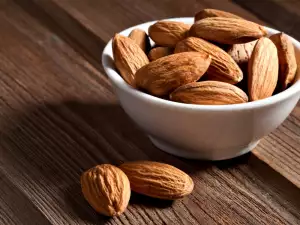
Almonds contain high amounts of amino acids, biotin, niacin, unsaturated fat and omega-6 fatty acids. They are rich in antioxidants, fiber and protein. They contain more calcium than any other nut.
Types of almonds
Almonds are classified into two categories: sweet and bitter. Sweet almonds are the type that is edible. They are oval in shape, usually with a wonderful soft texture and buttery taste. They are available in their shell and shelled. Peel the almonds whole, sliced or chopped in their natural form, with blanched peel or rind removed.
Bitter almonds are used to make almond oil, which is used as a flavoring for foods and liqueurs like Amaretto. They are not edible because they contain toxic substances such as hydrocyanic acid. These compounds are removed during the production of almond oil.
Selection and storage of almonds
Almonds, which are available in their shells have the longest shelf life. In their purchase, choose those whose shells are not broken, old or stained. It should be the same color and not soft or shriveled. The smell of almonds is also decisive. They should smell sweet and delicious, if you have a sharp, bitter smell, they are rancid.
In the selection of roasted almonds, choose those that are "dry roasted" because they are not cooked in oil.
Since almonds are high in fat, it's important to keep correct to prevent rancidity. Peeled almonds stored in a tightly sealed container in a cool, dry place away from sunlight.

Almonds will keep for several months if stored in a refrigerator, if frozen, they can be stored for up to one year.
Almonds in cooking
Almonds can be eaten raw, roasted and dried. They are a great addition to salads and porridge, oatmeal and granola, protein shakes and pasta. Almonds are often used as part of the trimmings of game and fish. Experienced chefs advise almonds are combined with olives and carrots, and a mixture can be topped lean fish - such as tuna and shark.

Culinary products made from almonds are: almond oil, butter, almond flour, almond paste and almond essence. Almonds are used in a number of pies, cakes and ice creams. They can be consumed alone, because there are many useful snack between meals.
To reap the full benefits of almonds, they should be soaked in water for at least 8 hours, then rinse. Thus removing inhibitors from them and they become easier to digest.
Benefits of Almonds
- Eating almonds reduces levels LDL fat and reduces the risk of heart disease. In addition to healthy fats and vitamin E, a quarter-cup of almonds contains almost 99 mg of magnesium (which is 24, 7% of the daily value for this important mineral), plus 257 mg of potassium. Magnesium is relaxing and helps to relax the veins and arteries.
- Almonds provide double protection against diabetes and cardiovascular disease ;
- Almond nuts protect against heart disease because of its high content of antioxidants ;
- Whole almonds (with shell) are useful for heart health;
- Healthy fats contained in almonds help you lose weight;
- Manganese, copper and riboflavin contained in almonds, provide assistance in the production of energy;
- The consumption of almonds helps prevent the formation of gallstones;
- Almonds are rich in protein.
Dangers of almonds
Roasted almond nuts are usually prepared for commercial purposes by frying, usually in more saturated fats like coconut oil and palm kernel. Deep fried foods are high in LDL (the bad form of cholesterol) and lead to a contraction in your artery walls.
Almonds are one of the few foods that contain measurable amounts oxilates naturally occurring substances in plants, animals and humans. When they become too concentrated in body fluids, they can crystallize and cause health problems. For this reason, people with already existing and untreated kidney or gallbladder problems should avoid consumption of almonds.
Almonds are one of the foods that most commonly cause allergic reactions.
Weight Loss with almonds
According to several studies, the consumption of a handful of almonds helps people lose weight because they suppress your appetite for the rest of the day. Moreover, almonds are considered very useful because they have a very low glycemic index / measuring how quickly a food causes blood sugar levels to rise after eating /. Due to its low glycemic index, almond helps a slow and steady increase in blood sugar, which makes people feel full for a longer period of time. Therefore, almonds are a great snack while dieting.
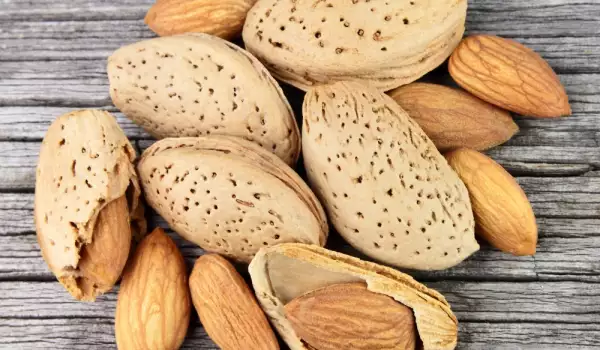


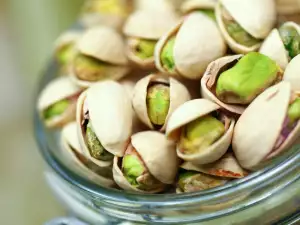
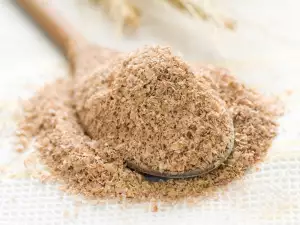
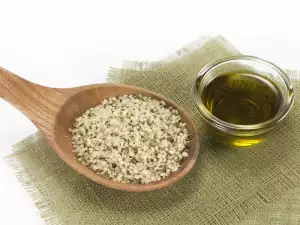

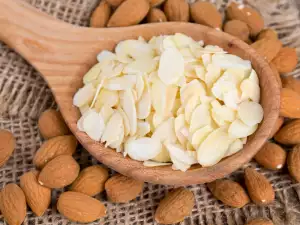











Comments